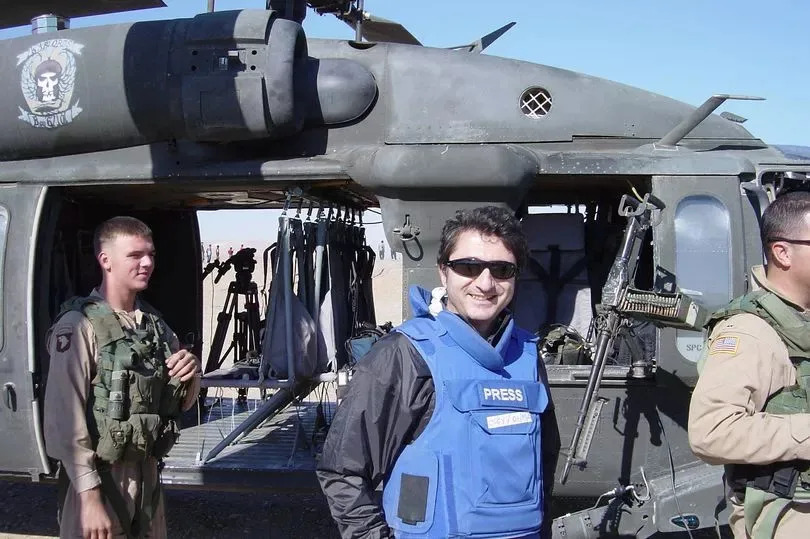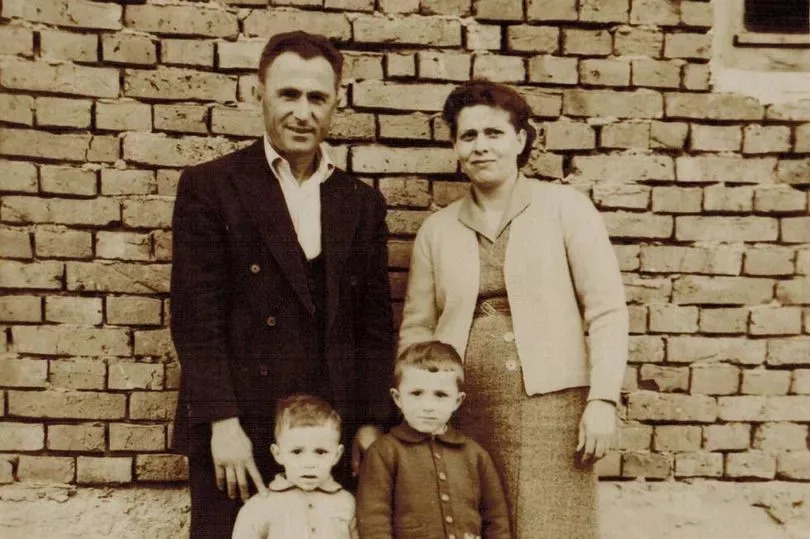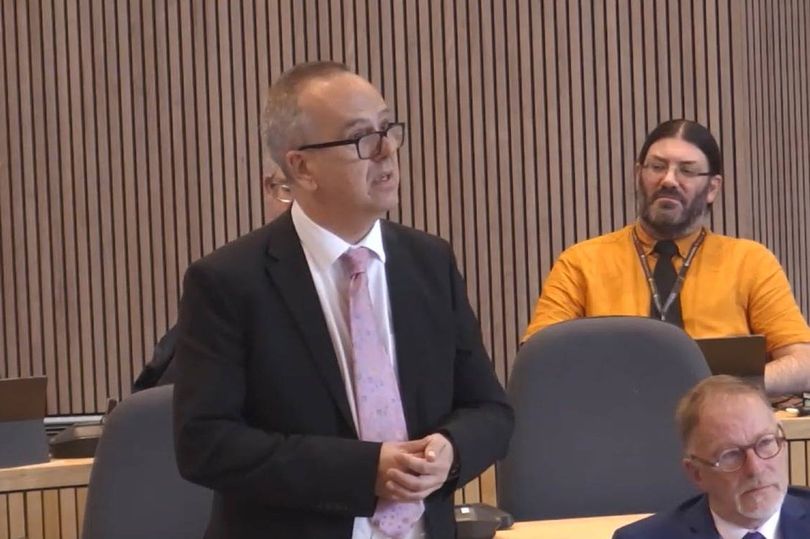A councillor, whose partner narrowly escaped being sent to a gulag during the Cold War, has urged those wanting to close hotels accommodating asylum seekers not to overlook the courageous individuals who have enriched the UK.
Coun Julian Tooke, who represents a ward in Cheltenham, delivered the heartfelt address during a debate regarding the use of hotels to accommodate asylum seekers.
The stated reasoning behind an unsuccessful motion proposed by Reform UK and a Conservative councillor was to guarantee that local democratic procedures were honoured and that communities received proper consultation and support.
READ MORE: Reform UK council’s flag policy review D-Day – but not everyone will have a say
READ MORE: UK braced for ‘seven days of non-stop rain’ as weather map turns blue
READ MORE: Urgent search to find three missing schoolgirls
Coun Tooke, a Liberal Democrat representing for Pittville and St Paul’s, shared the story of his civil partner Oggy Boytchev.
He was born in 1955 and raised in a small Bulgarian town during an era when political oppression was widespread and media censorship was standard practice. His father had been a prisoner in a gulag, a forced labour facility where he was sent for alleged anti-Communist behaviour.
In the 1980s, Mr Boytchev had the chance to escape to the West and he seized it. He was sent to Egypt while employed by a shipping firm to handle a stranded Bulgarian vessel but absconded and reached London in 1986.

Oggy Boytchev with US soldiers in Mosul in 2003. -Credit:Local Democracy Reporting Service
Coun Tooke told the Shire Hall meeting he had considerable knowledge about asylum seekers because he “actually fell in love with an asylum seeker 35 years ago”. “I fell in love with an asylum seeker who had been in a hostel not too dissimilar to the ones you want to shut down,” he said.
“I fell in love with that asylum seeker because that asylum seeker was an exceptional human being. That asylum seeker’s dad had been in a gulag breaking rocks for 17 years.

Oggy Boytchev with parents and younger brother in 1959 in Bulgaria. -Credit:Local Democracy Reporting Service
“And the fear was he was going to be in a gulag as well. So he fled. That asylum seeker, because he believed in liberal democracy and believed in speaking the truth, went to work at the BBC in the Bulgarian section.”
He said his partner would go on to undertake the same role as Bulgarian dissident journalist Georgi Markov, who was murdered in 1978. Mr Markov was thought to have been killed by a representative on behalf of the Bulgarian Secret Police and the Soviet KGB.
He was stabbed in the leg with a poison-tipped umbrella while waiting for a bus on Waterloo Bridge. Coun Tooke said Mr Markov was killed because “he too believed in this country and in speaking the truth”.
He described the perils his civil partner faced while risking his life to report truthfully from conflicts around the globe. “That asylum seeker, as you so casually dismiss them, actually became a TV producer,” he said.
“He went to Fallujah, he reported on the kids that were being born with deformities because the Americans had put radiation on missiles. He was bombed in Iraq so you could see what was going on there and was almost killed.
“These people you are dismissing are people. Now you may not want them to be your neighbours. But you don’t know what they are like. Please do not dismiss my civil partner and the brave people who have come to this country and added to it.”
His speech was met with a round of applause. The motion was rejected by 36 votes to 12 with two abstentions.
